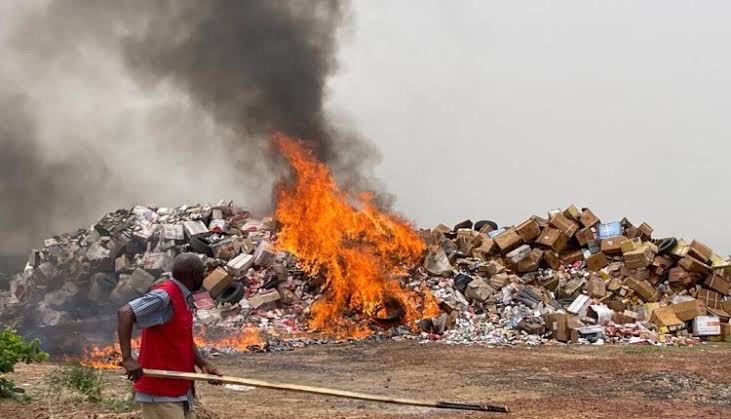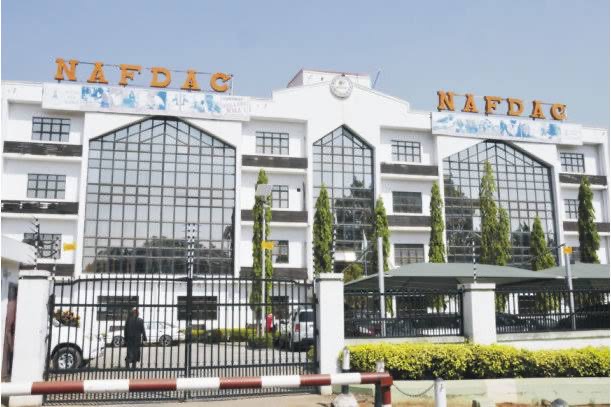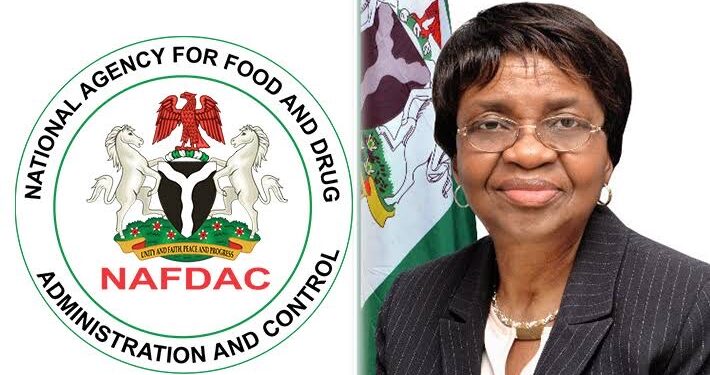The National Agency for Food and Drug Administration and Control (NAFDAC) on Thursday disposed of about 2.7 billion naira worth of fake, adulterated, and unregistered food, medicines, and cosmetics seized in the Southeast of the country.
The products were burnt at the Enugu refuse dumpsite, Ugwonyema, Enugu State.
In brief remarks during the exercise, the Director-General of NAFDAC, Professor Mojisola Adeyeye, said the products endanger the health of over three million people.

Prof. Adeyeye, who was represented by the South-East Regional Director, Martins Iluyomade, said the products “would have increased the health burden on the already overstretched health institutions in the country”.
According to them, poverty rates have risen because of the products as people have to spend money on medical treatment that could be better used to improve their livelihoods.
“It is also pertinent to know that several people have met their untimely death due to the consumption of these poisons.
“This event today is to signal to the people of the South-East that it is no longer business as usual to merchants of death, who are hell-bent on destroying other people for their own selfish economic gain.

“I want to thank other sister agencies for their cooperation, without which we cannot succeed in this endeavour.
“NAFDAC will not rest on its oars until every household in the country can buy any regulated product without fear of substandard, adulteration or fake.
“We enjoin the public to join us in this fight by reporting unscrupulous manufacturers and businessmen, who engage in illicit practices to report to the nearest NAFDAC office for prompt investigation,” Ms. Adeyeye said.
Earlier, Iluyomade in his remarks said the South-East states play a very strategic role in the fulfillment of NAFDAC’s mandate.
He said, “If the work of NAFDAC is got right in the South-East, 70 percent of the mandate of the agency will be achieved.
“Several raids and routine activities have led to the confiscation of several fake, substandard, falsified, adulterated and spurious foods, drugs, medical devices, cosmetics, chemicals and other regulated consignments.
“These products are very injurious to the health of Nigerians, especially the people of the zone,” he said.

































